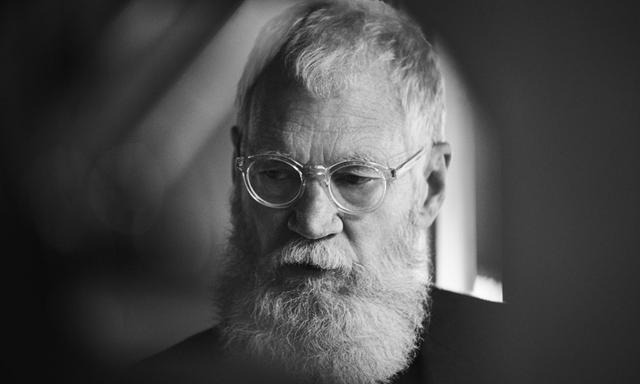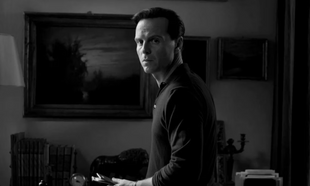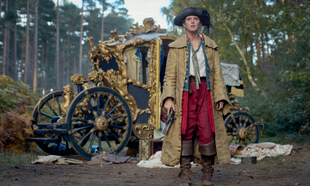There was always something enigmatic about David Letterman. He didn't do a huge amount of press when he hosted both Late Night shows or really since he retired. Occasionally he'd pop up on super-fan Jimmy Kimmel's ABC chuckle-fest, take the piss out of the popular host (which, to be fair, Kimmel seemed to take much glee in) and was becoming increasingly self-deprecating in his retirement.
Something changed in Letterman before he made the first season of 'My Next Guest' and that change has really only been seen publicly in the second season - which has just dropped four episodes on Netflix. The seminal nature of how David Letterman hosted his show reverberates around American popular culture today. Conan and Kimmel in particular - themselves inspiring a generation of erstwhile hosts - have made no secret of the fact that he shaped their comedy and general style.
When the iconic Johnny Carson ruled the airwaves, he did so with very little competition - Letterman only really had one rival, Jay Leno. The story of Leno getting 'The Tonight Show' gig ahead of Letterman and despite Carson's endorsing of the latter, led to a much-publicised rivalry and a grudge that still reverberates to this day. Leno, forever the company man, did himself no favours when he took The Tonight Show's 11.30 slot back from Conan, who had been waiting in the wings for five years, having turned down an approach from Fox to host a direct competitor on the promise of The Tonight Show. Alas, we digress...
Letterman is now operating in a post-woke culture and got ahead of his own possible #MeToo moment by admitting his behaviour towards some staff members was unacceptable. He didn't wait for anyone else to out him and called out a blackmailer on his own show, admitted his mistakes and pledged to be a better man, a better husband, and a better father. Sure, that could very easily be reactionary fodder for anyone caught behaving in such a way, but he has never shied away from it and even discussed it with Marc Maron on his popular podcast, WTF recently. Letterman deep-dived on not just his behaviour at the time, but his frame of mind - thinking the show was the absolute be all and end all of everything. He spoke about how much he regrets not having kids sooner, talking about his son Henry with unsaturated pride and affection.
So has Letterman's style changed with the times? Well, the format has; for those that haven't seen an episode, 'My Next Guest' is a long-form conversation in front of a live audience - who have no idea who they're going to see Dave interview. The first season had Barack Obama, George Clooney, Jay-Z, and Tina Fey amongst its revered interviewees and Dave switched his style up accordingly, using the longer interview time to delve deeper and allow the guests room to breath, think and riff.
This season he's more comfortable with the looseness of the conversation as the show is cut with b-roll of Dave interacting with his guests in their natural habitat. It's an interesting caveat to the series and one that works better in the second season than it did the first. The style of the interviews is much more self-aware and less classic Letterman; he was always incredible with guests and never cared how big they were or who they were, but now he seems more interested in them as a person - which may reflect how these people are booked. This isn't a celebrity doing the rounds, plugging a new show or movie - this is people of immense note being interviewed by a living broadcasting legend.
As someone who occasionally interviews people of importance, it's how he deals with potentially tricky interviews that really stood out to me. Kanye West made Jimmy Kimmel visibly nervous on 'Live' and Letterman announces at the top that he "hopes this one goes well." Genuinely complementing West in almost the same breath as a tough question is a genius move when dealing with someone with an obvious ego, but he also lets him talk, challenging him where applicable but doing so with no signs of snark and an almost paternal protectiveness.
The second interview is similar, if slightly warmer, as he welcomes daytime television superstar Ellen on stage and amongst scattered, genuine laughs is the sharing of some remarkably intimate stuff. It's a beautiful conversation between two people who obviously held each other in professional high regard, but never got to know each other personally - a common theme with Letterman over the years.
Where he goes next, who knows. But a third season is seemingly inevitable. While Conan thrives with the podcasting platform, what's to say 72-year old David Letterman couldn't follow suit?










































































